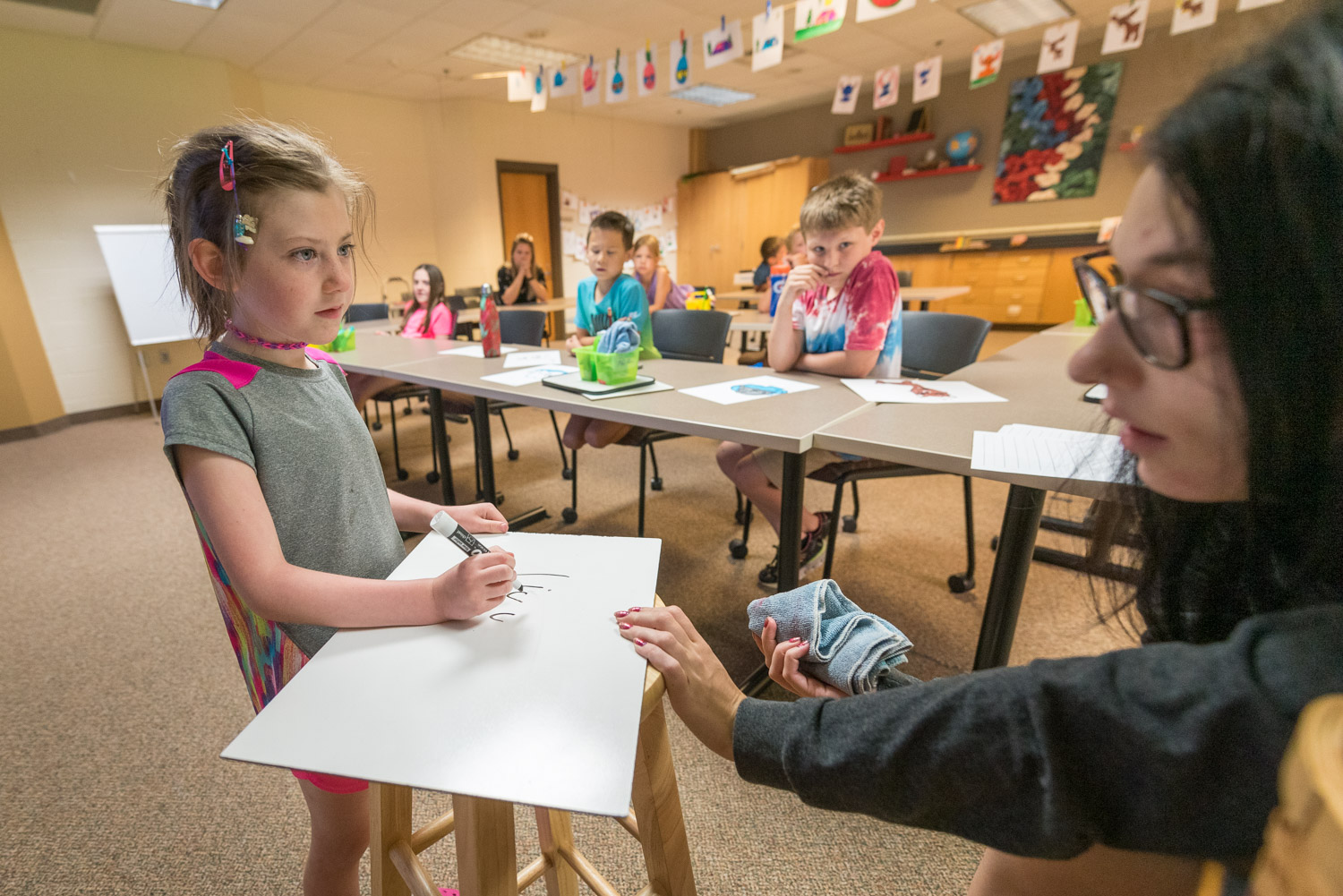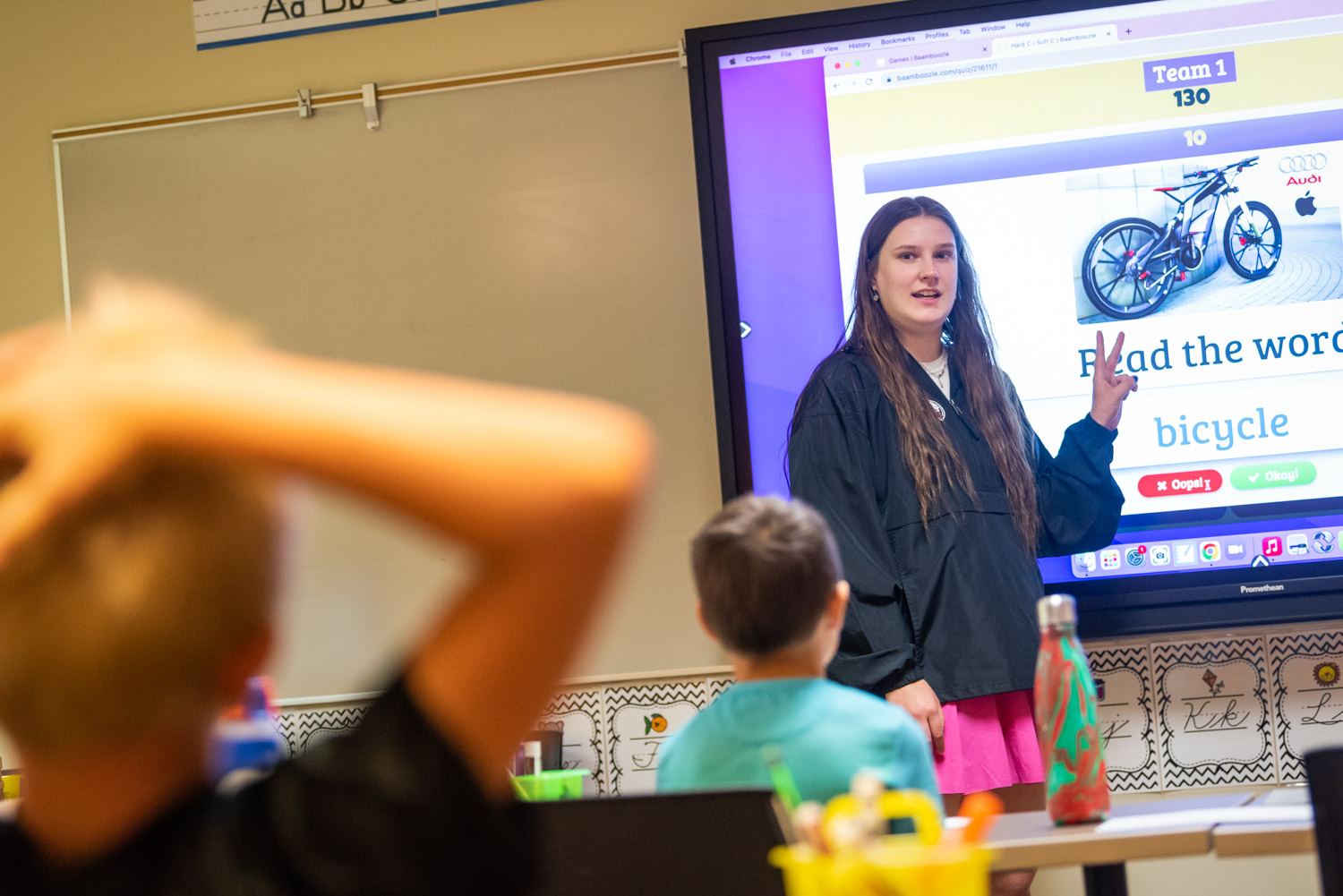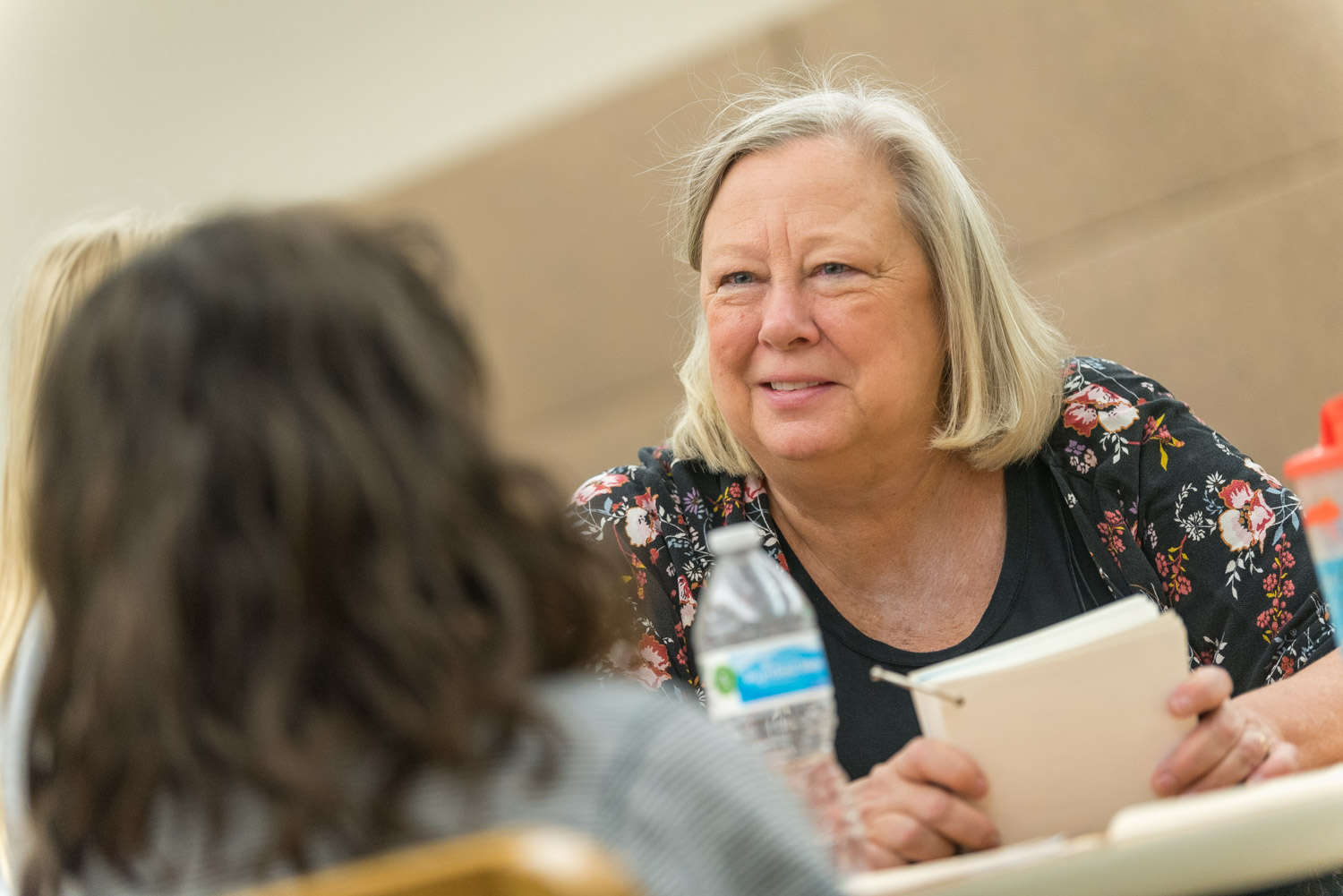


Among the many important proficiencies a child must develop at an early age, perhaps the most critical is the ability to read. For many students, learning to read ranges from challenging to a very difficult assignment. In 2019, the National Assessment of Educational Progress reported that 66% of fourth graders were performing below the recommended reading standards. And according to published research, between 10 and 25 percent of kids are drastically behind in reading skills.
Bethany Lutheran College Professor of Education Dr. Carrie Pfeifer has experienced firsthand these challenging learning situations, and she has been working persistently to find ways to improve student reading skills.
“I’ve been interested in helping struggling readers throughout my teaching career, and it was clear to me that lots of teachers struggle with how to help teach their students to read. In my work with at-risk learners at two high schools, learning difficulties really seemed to always come back to the student’s reading ability. On top of that, we are the parents of a dyslexic child and have worked tirelessly to help him get the interventions he needed, but it was often help that was out of reach financially.”
Pfeifer began searching for ways to make literacy and reading skill improvement more accessible for the students needing that extra help. In order to expand her knowledge and understanding of reading pedagogy, Pfeifer worked closely with a dyslexia specialist at the Minnesota Department of Education and other college and university professors from across the state. Additionally, she volunteered her own time in professional development to many schools in the Mankato region, and the Mankato Public School District collaborated with her to work with cohorts of elementary teachers.
Reading interventions is a term used to describe targeted support (tutoring) provided for at-risk students based on their level of need. In reading education, there is a core curriculum that all children receive. When students don’t respond to the core curriculum, and they struggle with reading, interventions are employed. These interventions are provided in tiers of support. Students are assessed and placed into three tiers or levels of interventions. If a student does not respond to Tier One, they move to Tier Two, and then Three if necessary. The interventions use practices and curriculums combined with time spent on specific tasks to help a student improve their own reading skills. The work with students is based on research-based practices and continuous assessment. All of this is done before a child would be referred to special education.
Pfeifer’s work with students experiencing reading difficulties has laid the groundwork for an effort focused on improving literacy in the Mankato area through an interventions clinic at Bethany Lutheran College. An initial gift from the Mankato Area Foundation got the program off the ground in June, but future funding was in doubt until the clinic received a huge boost with support provided through a $61,000 grant from the Sauer Family Foundation based in St. Paul. With the help of the Sauer Foundation, the clinic will be able to operate initially for a two-year timeframe. Pfeifer’s goal with the clinic is to provide students and families with reading help free of charge.
The interventions are provided by Bethany education students serving as tutors. These sessions are offered at no cost for struggling readers. While the clinic sessions immensely benefit the students seeking help, the setting also provides a rich training ground for future Bethany teacher candidates. Pfeifer serves as mentor and tutor for the future teachers, and provides the training and ongoing support ensuring success for all.
The interventions clinic operates on the Bethany campus in the Education Lab Classroom located in Memorial Library. Interventions are one-on-one and arranged at a time that works for the Bethany student tutor and the family. Students receiving help must participate in a minimum of two 70-minute sessions per week. Pfeifer noted that online intervention services are being considered, but it’s preferable to have students participate in person. She is very happy with the progress of the clinic thus far.
“The funding from the Sauer Family Foundation allows us to provide this support free of charge to community children in a monitored and controlled space. Our Bethany education students can practice teaching reading and provide targeted support where gaps exist. This will give them the skills and confidence to teach reading in their future classrooms. And it’s especially beneficial because it provides Bethany with an opportunity to share our mission and vision with the community while helping all Mankato students and teachers grow in an understanding of literacy.”
And going forward, resources are being set in place to continue literacy training at Bethany. A former colleague of Pfeifer’s, the late Bethany education professor Polly Browne was also keenly interested in literacy education. After Browne passed away in 2020, family and friends donated a sizable gift to the College in her memory that would fund a chair position in the Education Department. A portion of that position’s work will focus on literacy initiatives. Dr. Pfeifer was chosen as the first Polly Browne Distinguished Chairholder, and as such will continue cultivating her interest in literacy training through ongoing work.
Families of students residing in the Mankato area who are interested in learning more about reading help may reach out to Dr. Pfeifer. One-on-one 12-week sessions take place in the fall and again in the spring. Space is limited.

